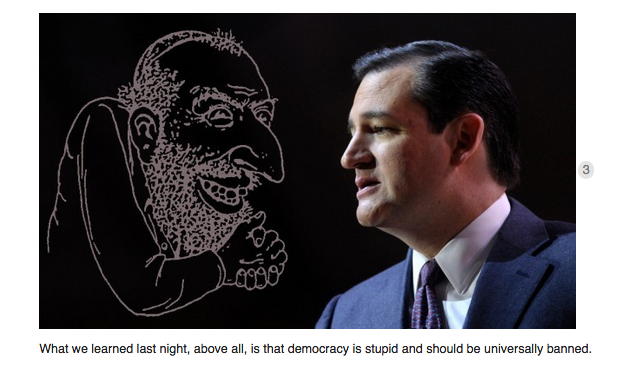Comment: The Song Remains the Same?
 |
| Dance music's 2 choices: sell its soul to the Devil or die? by Julian Dourado www.juliandourado.co.uk |
I often get accused of taking clubbing too seriously but that's simply not true. I find clubbing fun - and, at times, funny - but serious? Don't make me laugh (pardon the pun). In a club, I know I can go through the motions of change but that's all. No matter how far I get, I know that at some point, the lights will go up, the bouncer will shepherd me out the door, the floor will be swept and all traces of whatever transformation I experienced there will be removed. The club is not a community center, after all: it's a product and as such, it needs to be consistent. Any alterations by its users have to be removed, its original shape restored, before it can be re-packaged and re-sold. How could somebody who is committed to real change take that seriously?
A recent article about the crisis of creativity in dance music made it clear to me that some DJs and producers have a way more serious view of the club scene than little old me, though.
"Artists who want to have careers in electronic music have to do double duty as producers and performers" says author Phillip Sherburne in the article, which was published on Spin.com. He goes on to outline the serious financial considerations involved in putting out dance music. "The amount [of money] that's left over for the artist is very small indeed, so musicians who want to make a living need to tour," he writes. Dance music may have come from an underground that made up its own definitions and rules, but the club industry has turned it into a suffocating institution, it seems.
In the past, underground producers kept their overheads low by playing at illegal unlicensed venues and selling music directly to fans. This was similar to the model of music distribution was used by the indie and punk rock scenes. Dance music's pioneers didn't all get rich but they had fun and made money more easily than today. Fast forward 15 to 20 years and you have those same producers handing responsibility for the venue, management, promotion etc over to a club industry which closely follows the corporate model. And, surprise surprise, they're worse off for it.
Producers and DJs who have been lured into playing the commercial club circuit by the promise of worldwide connections and gigs, have found that they have to do loads more work for less return. "For producer/DJs to get consistent bookings, they need to keep up a steady flood of new productions in order to keep their name circulating in the public," writes Sherburne. "So they end up releasing tons of mediocre shit, just as talented producers deliver sub-standard DJ sets". He astutely connects this mass-produced mentality to the decline in creativity in dance music. "Since they're gigging every weekend and then recovering from jetlag and hangovers, there's precious little time to actually sit down in the studio and get real work done. Making good music takes time," he laments.
It sounds like DJs and producers are facing the exact same dilemmas they did when dance music was a purely underground phenomenon... only now, they have the added pressure to put quantity before quality. The result? "The market clogs up with mediocre, sound-alike productions [...] the marketplace gets cluttered. Listeners burn out. It gets harder and harder to find original, exciting music". By treating dance music fans like they're any other market, that's exactly what they've started to act like: mere consumers who choose “techno” for the same reason that they choose Big Macs or Adidas over rival brands, shopping around for the best bargain. DJs need to act like they're on a production line, pushing their work through a combination of advertising, product familiarity and image. This conundrum is one reason why a hard-core minority of the dance music scene refuses to work with the club industry. Dance music does not have to follow the industry rules... in fact, it has only survived by breaking the rules. (Note that I use the word 'survived,' not 'thrived'. In order to thrive one must forget about doing anything artistic at all).
 | |||
| Double agent: Berghain's Norman Nodge. Photo: Katje Hanke |
When it comes to creativity in dance music, the club industry is not the main act. At best, it's an intermission. The main act happens when people meet up before or after clubs, in places where there are no restrictions and begin to re-imagine reality in a way that makes better sense to them. Almost all of the best dance music has come from this sort of underground scene, where idealists could freely continue the transformation that started on the dance floor of a club. By pushing that change as far as they could, dancers, producers and DJs created scenes that resonated with freedom, passion and artistic integrity. People bought their records, not because of a more successful business model, but because the sound was forever entwined with their memories of experiences and personalities from a scene they believed in.
That is something no industry has figured out how to recreate. Let's hope it never will.



Comments
Post a Comment